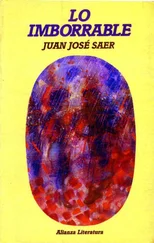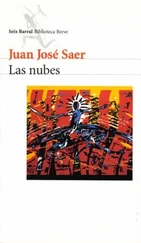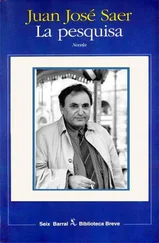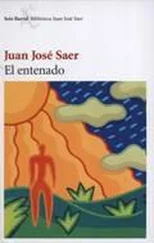The staff, intermingled with the patients, was distributed throughout the three sets of corridors; they actually formed three squares, each with two shared interior sides. Built in a row and all continuous, the three squares aligned to form a rectangle together. The middle square shared two transverse walls with the first square past the entrance and the one farthest off; in matters of architecture, the doctor was fond of geometry. The first of those transverse sides in the middle square was a long salon that served as a refectory with a kitchen at one end. The cook was an employee, but his helpers and serving boys were all mad. Per Dr. Weiss’s instructions, when one of them wanted to cook, the chef placed the kitchen at his disposal. In fact, the cook once went to visit his family on the other side of Buenos Aires for two or three days, leaving the kitchen in the hands of a patient. In the lateral corridors opposite the lower square, just past the entrance, Dr. Weiss and I each had our rooms, which also served as our offices, his to the left and mine to the right.
In our Casa de Salud, truth be told, there were very few medicinal remedies. According to Dr. Weiss, of the various causes that might explain insanity, the most improbable were those that came from the body, and he posited that in matters of mental illness, the cause must be sought out in the mind. As the doctor told me in one of his first letters from Amsterdam: But that mixture of sensations, passions, imagination and thought, truth and lies, good and evil, love and hate, crime and remorse, desire and renunciation that is the mind, does not make our work easier. In a sense, for men the body is a remote region of their very selves, and if they hold it responsible for all their evils, they resign those evils to the control of nature, which for them is synonymous with fate. In what they call the mind, however, they themselves are deeply implicated. In the vast majority of cases, exchange with the outer world does not occur within the body, but in the mind. The body is a hidden land that few are privileged to tread or contemplate, while the mind is in constant exchange in the public square, and those who boast of maintaining a pure, hidden mind fail to see the point: That property they believe to be remote and ethereal, others can sully. For this reason, practically everyone prefers to find the cause of all wrongdoing in the body.
At any rate, Dr. Weiss’s principal method consisted of maintaining identical relations with the patients as he did with the sane, and only in extreme cases did he try some sort of treatment, often temporarily: the prescription of certain medications, for example, or confinement, or hot or cold baths. On rare occasions we found ourselves obliged to use a straitjacket. As for the baths, they were part of our routine, and patients bathed in a separate structure near the river, as white and well kept as the main building. We treated physical ailments by the usual methods, and in more serious cases, the doctor did not hesitate to summon one of his colleagues from Buenos Aires for a consultation. But I must add, if I want to abide by the utmost truth, that the vast majority of the many patients under our care seemed to enjoy exceptional health, physically speaking. Ensconced in their own worlds created entirely by their delirious imaginations and often incomprehensible to the rest of us, they seemed protected from the natural condition endured by those who enjoy, as they say, their full faculties. Encased in their own illusory worlds, the patients seemed to take root, and so did not suffer the decay that befalls all physical substance, but rather an interminable drying-up, a slow calcination whose hardening was not measurable with known instruments. The parts of them that came dislodged — hairs; teeth; skin; the occasional eye that seemed to vanish into thin air from behind a sealed eyelid; a few fingers severed in an accident; a leg that seized up and refused to walk, obliging one to always drag it like an old piece of furniture — these were like shreds of wrapping, torn in the bustle and commotion of a journey without the parcel they protect suffering the slightest damage.
When it came to housework, each helped according to his needs and as desired, and repairs, painting, and the orchard and gardening, along with maintenance of the farmyard (which lay outside the building past the three large acacia trees that gave the place its name), and kitchen tasks as I have already mentioned, were shared as necessity arose among whatever volunteers turned up, Dr. Weiss included. More than once, I saw him tend to a patient as he worked in the garden or painted the adobe walls, the preservation of whose immaculate whiteness, along with the scrupulously clean rooms and corridors and the care of the farmyard and tree-lined courtyards, occupied most of the day’s labor. With regard to these communal chores, I ought to note they did not result from disciplinary impositions, but rather from the whim of the patients volunteering; this labor system that Dr. Weiss so carefully devised yet again proved his inimitable realism and unerring shrewdness. If madness is defined by the very delusions it manifests, and if in many cases the patients are free from physical pain, it is clear that its other consistent feature is unruliness: Reason, though capable of imposing its discipline even onto lightning that drops from the sky, is not enough to tame delusion. He who wishes to deal with the lunatic is wiser to appeal to his caprice rather than to his obedience. Our mad did not often follow externally dictated standards, but rather what their own delusion required, sometimes with the foreseeable consequence that the outer world, hitherto unquestionable, yielded to them. I recall an incident in 1811, when a Revolutionary official whom I would have numbered among our enemies, charged with inspecting our establishment, took an unexpected tumble from his horse during the first days of his visit — though it failed to shuffle him loose the mortal coil, as they say. He commented at the end of his stay, not inappropriately, that during his recovery at the Casa he had spent all his time trying to distinguish the madmen from the sane, to which my esteemed teacher responded — the usual twinkle in his bright blue eyes, but without receiving even the slightest smile of complicity in return — that when he passed through the streets or halls of Buenos Aires, he was frequently assaulted by the same bewilderment.
The object of this memoir is not a detailed relation of life in Casa de Salud, but our voyage of 1804, whose scant hundred leagues were multiplied by obstacles, foreseen or unforeseen, that delayed our advance, and by natural phenomena that upset our plans, and by certain unusual episodes that led us more than once to the brink of disaster. But before I tell the story, I want to remark upon the circumstances that led to the Casa’s fall.
In Madrid, we obtained the necessary authorizations to settle with ease, which can be explained by the fact that the Crown believed each new institution founded in the colonies helped to solidify its presence there. It is also explained by the ignorance of nearly all the Court officials regarding our area of expertise and the manner in which we thought to exercise it, even though Dr. Weiss had been partly inspired by the example of some doctors in Valencia who had practiced a more humane treatment of madness during the previous century. To this I might add the fact that we had to pay a tax because, in truth, taking into account the financial state of practically every European monarchy, it always sped proceedings along. Besides, convinced of the nonexistence of anything outside their purview, the dignitaries believed there were no madmen in America with families able to pay for someone to look after them, so in their private counsel they doubtless thought that Dr. Weiss and I were two naïfs, ready and willing to squander his fortune on a half-cocked undertaking destined for failure. But when the long white rectangle opened its doors at the feet of the three acacia trees and the patients began to flock in, local dignitaries began to take us seriously and, when word of our novel methods spread, public opinion split over their seriousness, their efficacy, and even their decency. The Church for example, which granted itself power in the colonies of which it would never dare dream in the motherland, sought to judge how patients should be treated, requiring Dr. Weiss’s inexhaustible patience and cleverness, ever-ready to overcome any difficulties. During our private deliberations, the doctor told me that, for the moment, a direct confrontation with the clergy would be unproductive and not without danger, and that the best way to fight them was to proceed with our scientific work without making concessions; but, at the same time, even when we ought to have avoided provocation, he was unwilling to renounce his ideas. When the Revolution came years later, we hoped it would also come for us and that our work would finally be recognized, but many of its supporters were no different from its enemies in terms of political, scientific, and religious views. The wars that followed did little more than exacerbate the situation: The civil war was already brewing in the wars for independence, and one might even say that the first battles of the war for independence were in fact a sort of civil war, for those killing each other were the same as those who, five or six years earlier, had been fighting together against the English. Though in truth the region had never really been calm, during wartime we often saw companies of soldiers passing through by land or water, sometimes branching off from their route to come knock at our door out of curiosity or to see a doctor, or sometimes to beg a little water or even something to eat. Most often, when they realized they had found a hospital, and especially when they discovered what kind of patients we treated, they rushed off, leaving us in peace: It is already known that madness often provokes unease, if not laughter, and, more often than not, consternation and fear.
Читать дальше












